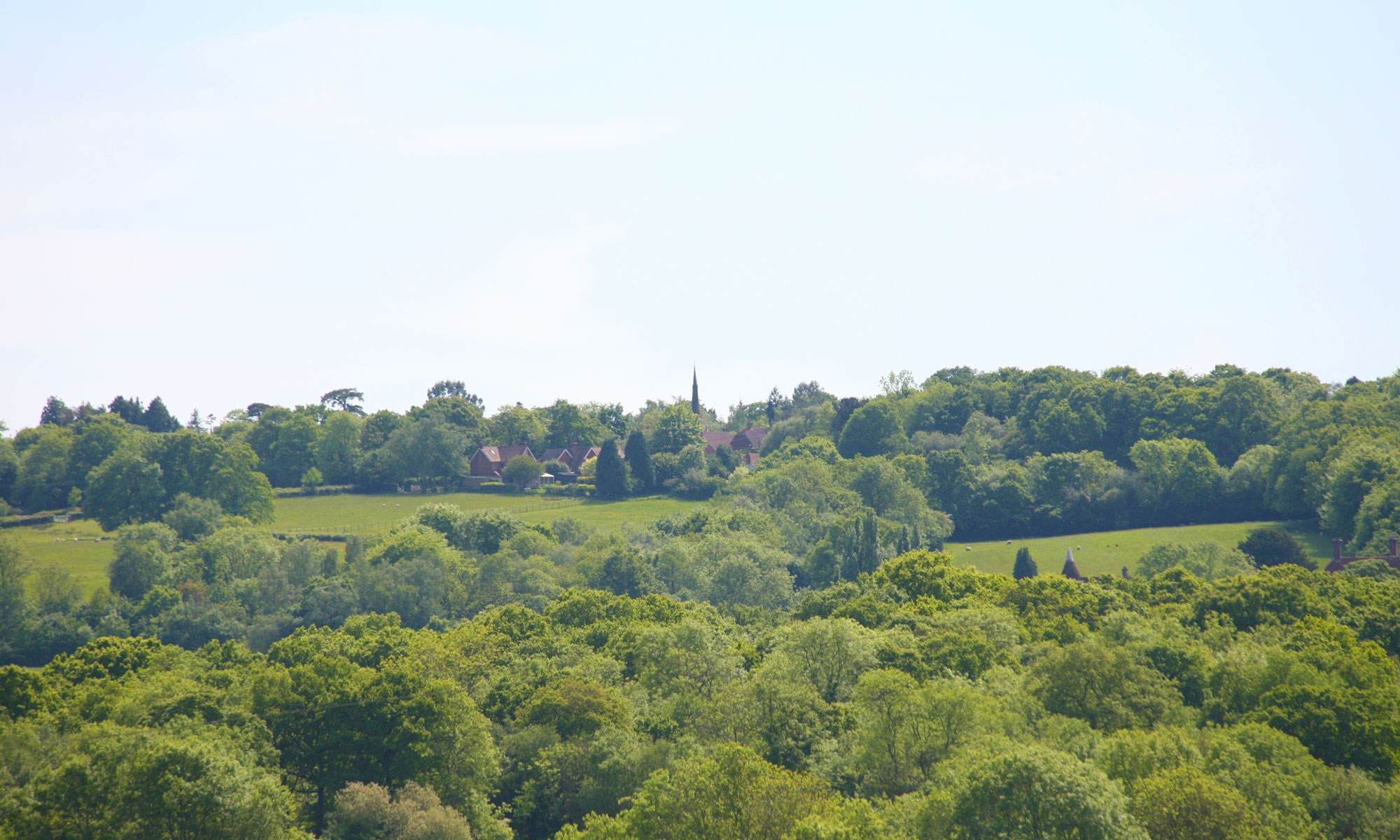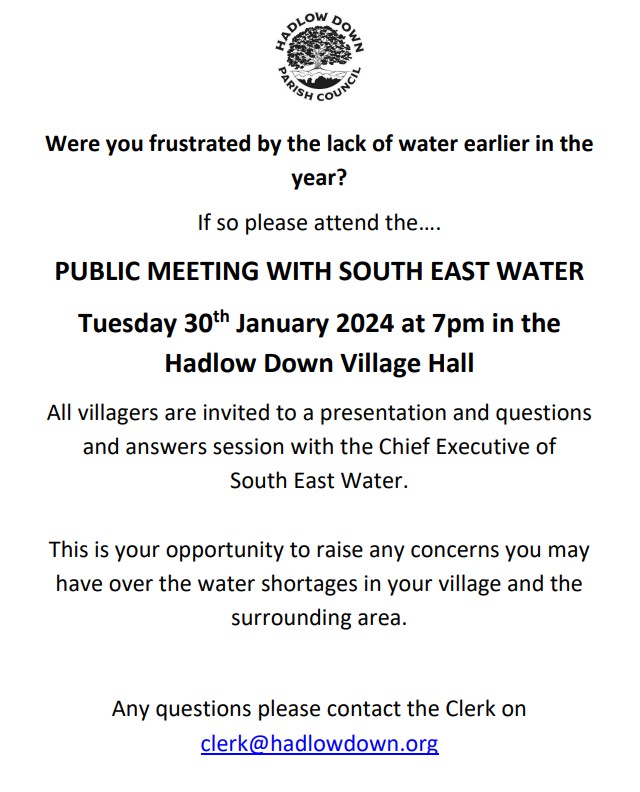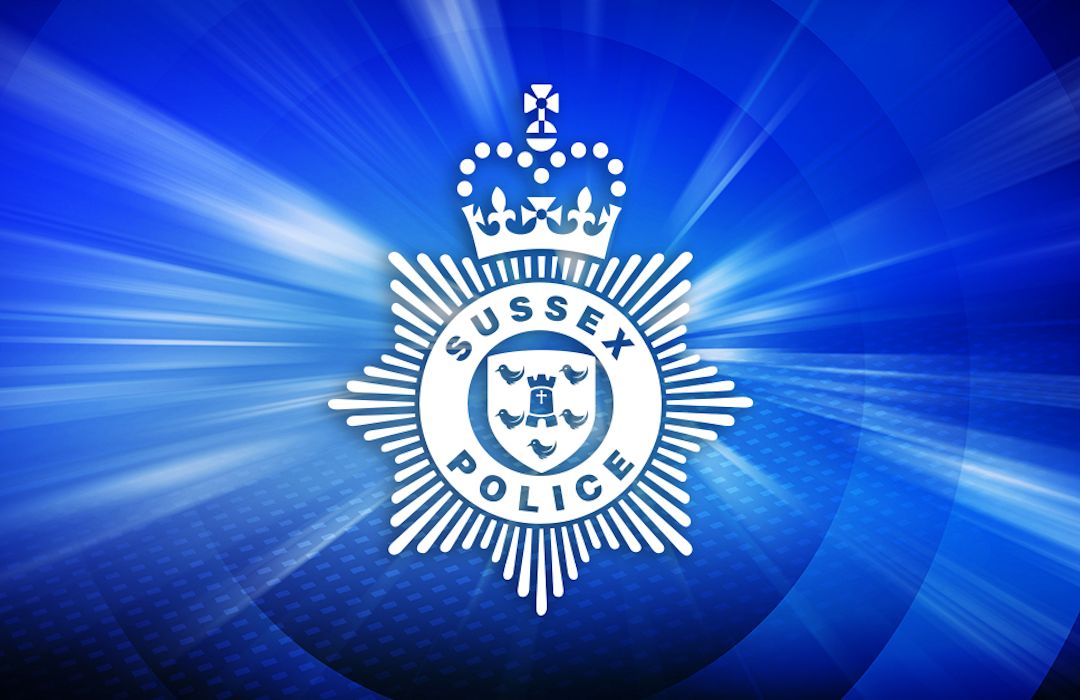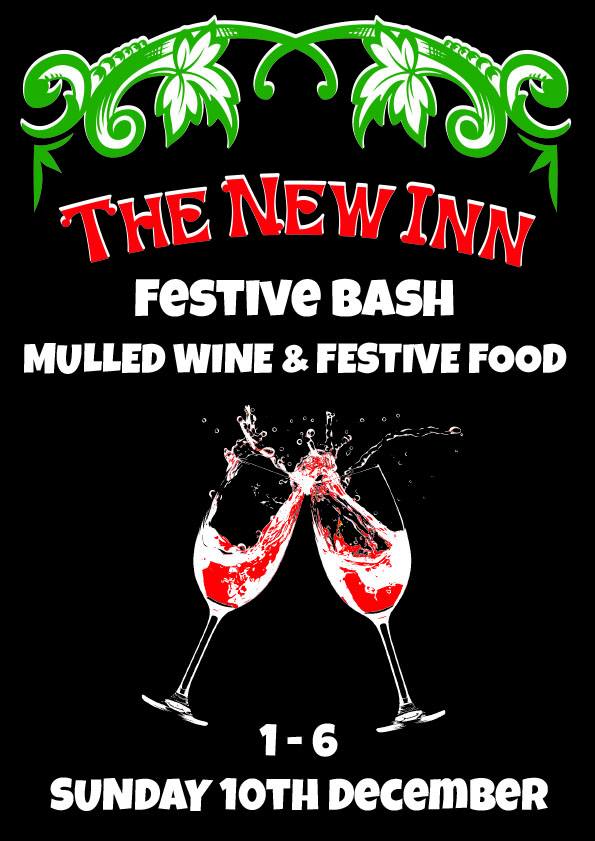Admin are happy to promote this event which includes support for the wonderful Hadlow Down asset The Kit Wilson Trust

Public Meeting with S E Water
Local PCSO to attend Parish Council meeting
Christmas Table Decoration Making
Christmas is coming! Do come along to our Christmas event on Saturday 9th December at 2pm. You can make your own stunning festive table piece with sparkly teasels, fircones and foliage. All welcome including beginners. Festive refreshments too. Its fun! To reserve a place do email: info@buxtedhorticulturalsociety.org.uk

New Inn Festive Bash
Parish Council Meeting – 5th.December 2023
The updated agenda for the HD PC meeting being held tomorrow evening at 7pm can be found here:
Christmas Rubbish Collections
2024 Village Calendar
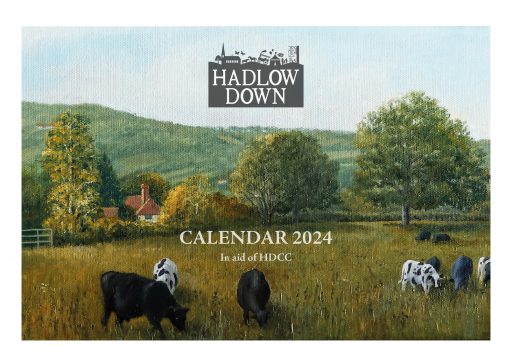
You may have spotted in the village magazine that HDCC have produced a 2024 village calendar.
Featuring photographs and paintings, celebrating life in our village. The calendar is a neat A4 in size and will be sold for £10 per copy, all profits will go to HDCC as part of their ongoing fundraising activities.
Please visit their website here for all the details.
Local Theft Alert!

4
Alice Catharine Day 1848 – 1930 Dec. Mini Bio
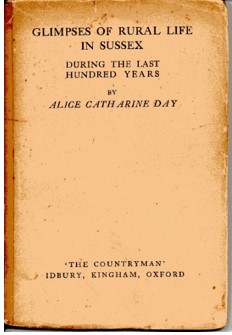 Alice Catharine Day was born in 1848 to William Day (1787 – 1849) and Anne Elliot Le Blanc (1806 – 1896) of Hadlow House in Hadlow Down which was then a part of the parish of Mayfield. She was baptized in St. Marks Church, Hadlow Down on the 26th. September 1848. Her father within a year of her being born.
Alice Catharine Day was born in 1848 to William Day (1787 – 1849) and Anne Elliot Le Blanc (1806 – 1896) of Hadlow House in Hadlow Down which was then a part of the parish of Mayfield. She was baptized in St. Marks Church, Hadlow Down on the 26th. September 1848. Her father within a year of her being born.
*Please note that throughout this article the writer has purposely used Miss Day’s correct spelling of her name Catharine spelt with an ‘a’ and not with an ‘e’.
Many Hadlow Down villagers know of Miss Day due to the reproduction of her book Glimpses of Life in Rural Sussex During The Last Hundred Years, which was first published in 1927, in the Millenium village book project of 1999. In one of her ‘glimpses’ she recalls visiting a village family in 1883, there are other dates of interviews with villagers including one in 1922 In her book she says she is ‘writing principally of my experiences among them [The Wealden People] during the years from 1874 till 1892’, as the book was published in 1927 a few years before her death at the age of 82, when compiling her book she was no doubt drawing on lots of notes made throughout her time living in Hadlow Down as well as her personal recollections as a young lady. Continue reading “Alice Catharine Day 1848 – 1930 Dec. Mini Bio”
